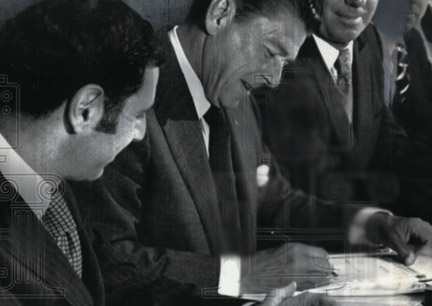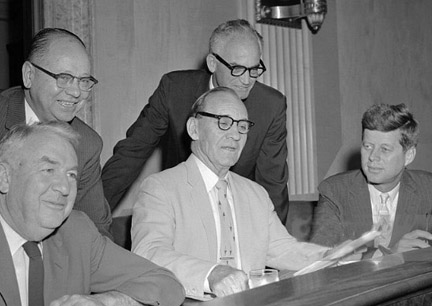Has big oil, led by a decades-long effort of libertarian billionaires, brainwashed us into into believing that government transparency is good for us – when the benefits accrue to them?
Is government sunshine warming our planet in ways that physical sunshine cannot?
Let’s take a look at the events.
In the fall of 1973, a peculiar thing happened in a peculiar place. Without any fanfare or public encouragement, actor-turned-Governor, Ronald Reagan signed the Grunsky-Burton Open Meeting Act, into law, thrusting the once secret California legislature into the glare of public scrutiny.

Governor Ronald Reagan 1967
Even today, with the power of Google, one would be hard pressed to find significant media coverage of the event. Ironically, California’s transition to open government appears to have been a somewhat smoke-filled affair.
But forty years later, an obscure character – working for an even more obscure California think tank named the Independent Institute – decided to write things up. In a piece titled “Open Government Requires More Sunshine”, Lawrence McQuillan covers Reagan’s efforts to push California’s once secret legislature into one that is now more open than any on planet Earth.
McQuillan’s conclusion, however, was not pride, but displeasure. To McQuillan, California was still not open enough.
At face value, this hard-right call for transparency seems odd. McQuillan’s oil-backed Independent Institute is fiercely pro-market, wildly libertarian, and a strong supporter climate denial – much like Ronald Reagan was.
But McQuillan is, and has always been, a diehard transparency advocate.
On top of his work at the Institute, McQuillan chairs the California Golden Fleece awards, an anti-corruption initiative which pushes frantically for more transparency in areas related to public transport.
Is this just an odd aberration? Folks generally associate transparency with progressivism. Or is there something deeper going on.
To be fair, it is impossible to paint Reagan’s efforts as anomalous. Transparency laws were part of the Zeitgeist of the 1970s. Radios everywhere blared the hit single “Let the Sunshine In” by the Fifth Dimension. And governments – even in the years before Watergate and the Pentagon papers – heeded the song’s siren call by opening doors and publishing legislator voting records like never before.
And Reagan’s legislation paled in comparison to a far more consequential law – ratified by another celebrated Californian – on the federal level.
On October 26, 1970, President Richard Nixon signed the Legislative Reorganization Act into law – the stiffest government transparency legislation ever enacted. Overnight, Nixon’s LRA transformed Congress from a place of quiet governance, into a spectacle – filled with rows of emboldened lobbyists and glaring C-SPAN cameras.
Forgotten is the secretive era of John F. Kennedy, who worked as a Senator in the 1950s. He made thousands of committee votes and proposals in heated markup sessions, but none of them were ever recorded – not by cameras, other members or stenographers.

Kennedy and Goldwater – 1959 closed Senate committee
These dark arts and secret votes date back to the Founders, who routinely sat in the Committee of the Whole , a shady and secretive procedural devise designed expressly to put the closed-door kibosh on lobbyists.
In the late 1700s, James Madison wrote the Bill of Rights, dozens of foundational laws, and the Constitution behind aggressively sealed doors. And the Framers – working in secret at the Constitutional Convention –inserted a right to congressional secrecy in Article 1 – “...excepting such parts as may in their judgment require Secrecy.”
But with Nixon’s LRA, the sun – and the hordes of lobbyists – came shining in.
For many these pro-transparency initiatives, and the actors involved, will seem a tad strange. Names like Reagan, Nixon, and the Independent Institute differ from the common perception of transparency as a progressive initiative.
This hard right effort to push for greater sunshine is scarcely anomalous, especially with respect to big oil, climate change, and the environment. As many will recall, the FOIA access to NASA scientist emails led to one of the more provacative ‘climate-gate’ scandals in recent memory.
But the story is far more intricate and deviant than just a few emails.
For example, oil magnate Charles Koch funds one of the strongest transparency groups in the US, the Freedom of Information Coallition. His overt funding of transparency aligns precisely with his lifelong agenda – the promulgation of Public Choice Economics (PCE).
Through Koch, PCE is now considered by many to be mainstream economics. But it’s philosophical center is entirely Koch funded – George Mason Univeristy, AEI, Brennan Center, etc.
More importantly, a core tenet of PCE is the notion of logrolling. Just a fancy term for the exchange of legislative votes in a market of varying preferences, logrolling can best be painted with innocuous examples like: I’ll give you my vote on funding for a bridge in your district if you vote to subsidize the cotton growers in mine.
But logrolling quickly leads to corruption and power grabs. For example, as Speaker, Tip O’Neil was able to logroll access to the congressional agenda (which he alone controlled) for endless votes on his preferred legislation – say, anything that might benefit Tufts University.
Somehow the long and sordid history of logrolling – and its ban in dozens of state legislatures as a result – gets overlooked by PCE. But Koch’s chosen flavor of economics doesn’t stop there. PCE, even warmly embraces the evil twin of logrolling – vote buying.
This means that Koch endorses research that broadly supports the ability of outsiders to pay (or intimidate) members of Congress for their votes. Markets for votes, as the authors of the seminal book Calculus of Consent, suggest, make government more Pareto-optimal.
Yet this market for congressional votes – an exchange of member preferences - has one simple requirement – a requirement outlined in the foundational papers of Public Choice Economics – all legislator votes must be made public.
Calculus of Consent and other PCE literature – with logrolling at its core – was developed in the late 1950s by economists James Buchanan and Gordon Tullock. And their work received funding from all the usual suspects – Mobil, Exxon, Kochs, Coors, Scaife, etc.
These same funders have been tireless in their efforts and still fund dozens of modern freedom of information or transparency organizations. One example: Judicial Watch, with 2.1 million followers on Twitter/X, boasts its core tenets right in their tiny bio:
A conservative non-partisan educational foundation promoting transparency, accountability, & integrity in government.
But Judicial Watch, like McQuillan and the Kochs, is not a right wing organization, it is hard right, extremist right.
Insidiously, in 1986, the Kochs efforts, along with the tireless work of other oil groups, led to the oddest thing of all, a Nobel Peace Prize. Long derided by progressives as a front for right-wing extremism, the most celebrated economics prize in the world, endorsed an unusual position in 1986 when James Buchanan was awarded the prize for this very idea – the transparent exchange (and purchase) of legislator votes.
Again, there is no need to dig through arcane documents that might accompany something like Eistein’s award for the photoelectric effect. Even a middle schooler can break down the simple language that appears at the top of the award:
Buchanan’s foremost achievement is that he…applied the concept of the political system as an exchange process for the achievement of mutual advantages.
If it isn’t clear already, these hard right groups have understood since the 1950s that a small minority (even a minority of one person) could obtain beneficial legislation if and only if congressional votes are transparent. Only public votes can be exchanged, purchased, or most insidiously, threatened – all actions that big oil is notorious for.
And when Congress turned on the sunshine in the 1970s, we saw what happens to environmental legislation under the glare of ‘public’ scrutiny. The once proactive institution became suddenly fearful. The middle disappeared as terrorized legislators fled to the safety of their often idealistic and blinkered base.
Similar actions take place around the world. Transparency is pushed on Brussels by powerful special interest groups, not disgruntled citizens. In Nigeria, Chevron has launched a decades long campaign to open up legislatures and government actions there. In 2023, one of their local subsidiaries emblazened their website with this warm embrace of sunshine.
We are part of the open government partnership (OGP) in Delta State, and we go to schools to teach students the basic principles of OGP. The goal is for them to understand OGP even as they become leaders.
The benefits of legislative secrecy are well understood. James Madison and Alexander Hamilton wrote about them. They inserted a right to congressional secrecy in the Constitution. Hundreds of scholars, including the sitting President, have spoke vocally on this topic.
But extremists on the right (and left) are not hearing any of it. Environmentalists seeking greater transparency in 1990 almost sunk the most powerful climate legislation in decades. The insistance on a public vote on impeachment (despite constitutional provisions to the contrary) kept Trump in office when perhaps 80% of the Senate would have voted against him if the vote was held – as the Framers often did – in secret.
Time and again, environmental legislation is compromised, because Big Oil manages to ‘block’ the legislation. Well, one thing is for sure. If Congress votes secretly, Big Oil lobbyists like all other lobbyists, find themselves in the one place they hate most – the lobby.
The solution to climate change, is similar to the solution to partisanship, inequality, the debt, gridlock, and legislative chaos – turn off the deadly sunshine.
–+–
James D’Angelo is Founder of Congressional Research Institute where he researches the weaponization of transparency and related issues.



